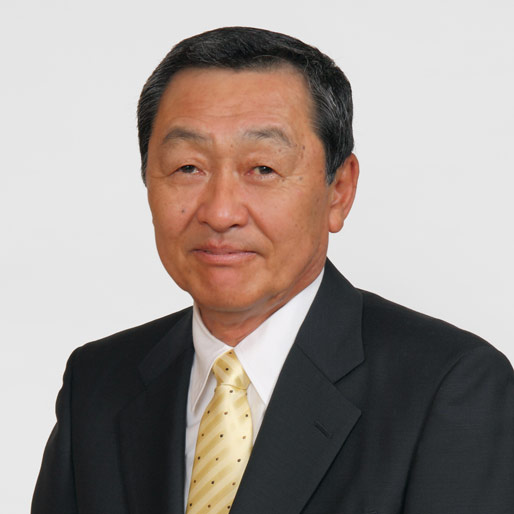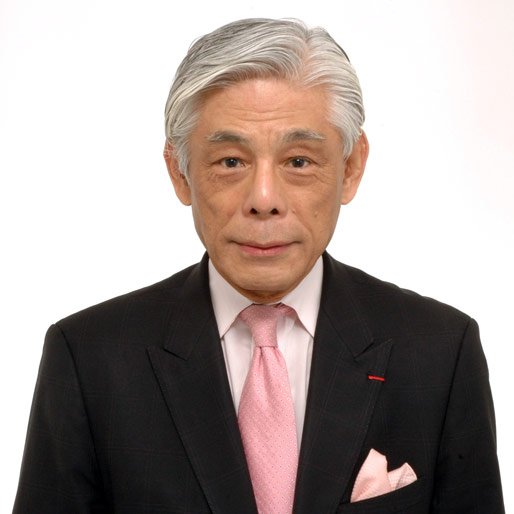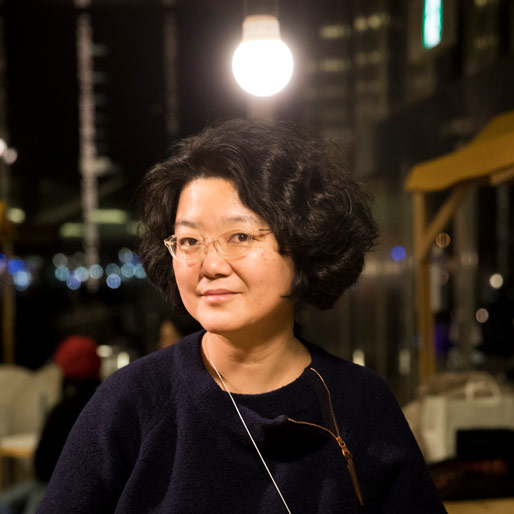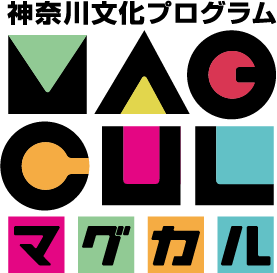YPAM2021
Yokohama International Performing Arts Meeting 2021 (YPAM2021)
Period: December 1–19, 2021
Main Venues: KAAT Kanagawa Arts Theatre, BankART KAIKO
Organized by Yokohama International Performing Arts Meeting 2021 Executive Committee (Kanagawa Arts Foundation; Yokohama Arts Foundation; Japan Center, Pacific Basin Arts Communication)
Co-organized by the Culture and Tourism Bureau, City of Yokohama
Supported by The Saison Foundation and “FreeWill,” Social Contribution Club of Ricoh Group in Japan
Cooperated by BankART1929 and Koganecho Area Management Center
Endorsed by the Ministry of Foreign Affairs of Japan, Kanagawa Prefecture, The Japan Foundation and the Association of Public Theaters and Halls in Japan
Messages from the Organizers

Kazumi Tamamura
President,
Kanagawa Arts Foundation
The annual performing arts meeting we have been hosting will ring up its brand-new curtain in December 2021, changing its name from TPAM – Performing Arts Meeting in Yokohama to YPAM – Yokohama International Performing Arts Meeting.
We would like to express our deep gratitude to all the people who have supported this event while the situation of performing arts has been changing drastically due to the spread of the new coronavirus infection.
KAAT Kanagawa Arts Theatre, managed by our foundation, will be one of the organizers of YPAM again this year and the main venue for YPAM Direction. We will make every effort to create the “Theatre of Openness,” thus making this event even more accessible for everyone in the neighboring areas and supporting artists who strive to create performing arts even in this challenging time with tremendous respect.
I hope for the everlasting development and prosperity of the newborn YPAM in the city of Yokohama that leads international cultural exchanges in deeds and in its name.

Seiichi Kondo
President,
Yokohama Arts Foundation
The values of culture and art and what it means to express through art are being questioned once again. Although the current focus amid the COVID-19 disaster has been solely on exploring ways to resume and continue the cultural and artistic activities that have been severely damaged, another question that should be addressed is what roles culture and art may take on in recovering the cities and society from the damage caused by the pandemic.
In the 10th year since it relocated its base to Yokohama, TPAM turned into YPAM so that it can not only serve as a network that connects people engaged in performing arts but also commit to the local community through performing arts as a network that connects artists and society. We will be further strengthening the connection between the city of Yokohama and the international platform that we have developed.
Although the influence of COVID-19 that has yet to be eradicated, I hope that YPAM will be able to propose new roles and social values of the performing arts.

Hiromi Maruoka
President,
Japan Center,
Pacific Basin Arts Communication
Director,
Yokohama International Performing Arts Meeting
YPAM (Yokohama Performing Arts Meeting) is a platform for people engaged in the creation, dissemination, and international exchange of performative and participatory types of arts such as the theatre, dance, or performance, loosely named by the term “performing arts.”
It started as “TPAM” in Tokyo in 1995, moved to Yokohama in 2011, and established international recognition as a performing arts platform that attracts a number of professionals from over 40 countries. However, the pandemic was declared just after its 2020 edition held in February, and the performing arts sector faced what I think might have been the worst adversity in history. In many parts of the world, performances and attendance at them were forbidden, whether legally or socially, and the act of forbidding was accepted, on a scale and with a speed that even the most powerful totalitarian state could not have easily implemented. Even if the ban is lifted, the impact of the realization and acceptance of the ban will not be easily neutralized.
The fact that the transition from TPAM to YPAM coincided with such a historic time was both difficult and, for lack of a better word, interesting. I believe that an unprecedented solidarity has emerged among performing arts professionals around the world during this period. But this solidarity seems to have been accompanied by doubts stirred up about the reason for the existence of the performing arts and the necessity of their international exchange, or, conversely, by an optimism that the performing arts are capable of adapting and responding to any given conditions. Historically, there have been, and still are, various forms of oppression against expression and movement. But this adversity is not like that. What do we have to lose and what do we have to gain from this experience?
The first YPAM will run for about three weeks, from December 1 to 19, and will include the following programs.
“YPAM Direction” is a performance program that aims to stimulate discussion among performing arts professionals, but it is also open to the general public who share the same awareness of the issues. In 1995, the performance program for the first edition of TPAM featured TAIHEN and Australia’s Bangarra Dance Theatre (in collaboration with the Tokyo International Arts Festival). A quarter of a century later, on the occasion of the first edition of YPAM, we present the latest trilogy by TAIHEN, “Wandering Love: Jo-Ha-Kyu (beginning-break-rapid),” in three consecutive nights. It will be live streamed as well. The final part, Heart and Earth, will be premiered at the Ai Hall in Itami in November this year, after three postponements due to the coronavirus disaster. It is said to be a science fiction piece that questions the future of capitalism and control society. Can we still learn something from this question, and from the fact that a performance troupe of severely physically challenged director and performers, who are said to be highly vulnerable to infectious diseases, persistently insisted on live performance?
Thanks to the “WA Project: Toward Interactive Asia through Fusion and Harmony,” a project that the Japan Foundation Asia Center took on in 2014 and was going to complete in 2020, TPAM Direction deepened collaboration with guest directors from Japan and abroad and took part in 10 international co-productions in East and Southeast Asia in six years. Although there is no realistic prospect of continuing on this scale for the time being, we hope that YPAM Direction will serve also as a place for the dissemination of works from Yokohama in the future. We plan to commission OLTA and Yang Zhen to create new works next year, so please keep your eyes on them. Yang Zhen will be the only international invitee in this year’s YPAM (excluding the collaborative program).
Unfortunately, due to travel restrictions, we have to expect virtually no international participants to physically come to Yokohama, so “YPAM Exchange” for professional networking will be an in-person/virtual hybrid event. For this purpose, we have employed a web platform called Swapcard. This platform has been employed by events around the world that are in partnership with TPAM/YPAM, and it is expected to promote year-round networking across events through a common account. All the talk sessions will be live streamed from a venue in Yokohama (BankART KAIKO) in Yokohama time, even if all the speakers are attending virtually. Not only virtual participants but also in-person participants should be able to interact with both colleagues in the venue and virtual participants by coming to the venue with their own device.
The keynote speaker will be Chen Tien-shi (representative of the Stateless Network and professor at the School of International Liberal Studies, Waseda University), who was born and raised in Yokohama’s Chinatown and has thought through identity politics and international exchange as a stateless person. Her reflections on statelessness teaches us about the existence of those who are excluded from the system, whether global or international, of which the basic unit is the state. I think we can revisit, from this perspective, the idea of international exchange going across national borders.
“TPAM Fringe” was used as an opportunity for participating artists/companies to show their works to professionals from Japan and abroad, and for professionals to discover new works, but it has lost at least half of its functions due to travel restrictions. The lost functions might recover sooner or later, but I think, more importantly, we have rediscovered another mission of the Fringe during this period. It may sound obvious, but it is to continue over the long term as a place where the free expression of live performance is unconditionally accepted. With this recognition, we would like to focus more than ever on “YPAM Fringe” as a fringe festival. We have gradually begun to take new steps to establish and expand this space, including the opening of the Fringe Center as a place for exchange, the development of a ticketing system to make it easier for the general public to purchase tickets for performances, a crowdfunding campaign to raise funds for the development of the management system, the distribution of program brochures to the local community, and networking with diverse venues in Yokohama. We have received registrations of nearly 50 live performances this year, which urges us to move on in this direction.
In addition to the above, we will also present the “YPAM Joint Program” in special cooperation with arts and culture organizations in Yokohama, including KAAT Kanagawa Arts Theatre (Kanagawa Arts Foundation), which has provided technical support and ideas as the main venue for TPAM Direction since 2011; Dance Base Yokohama, which opened last year for the purpose of developing a professional dance environment and fostering creators; and Yokohama Red Brick Warehouse No. 1 (Yokohama Arts Foundation), which has been hosting the Yokohama Dance Collection since 1996 and has helped to establish a culture of contemporary dance in Yokohama. There will be a lineup of works and projects that you won’t want to miss.
I would like to express my deepest gratitude to our new partners who have helped us in the planning, spaces, and funding, and most of all, to the participants.






